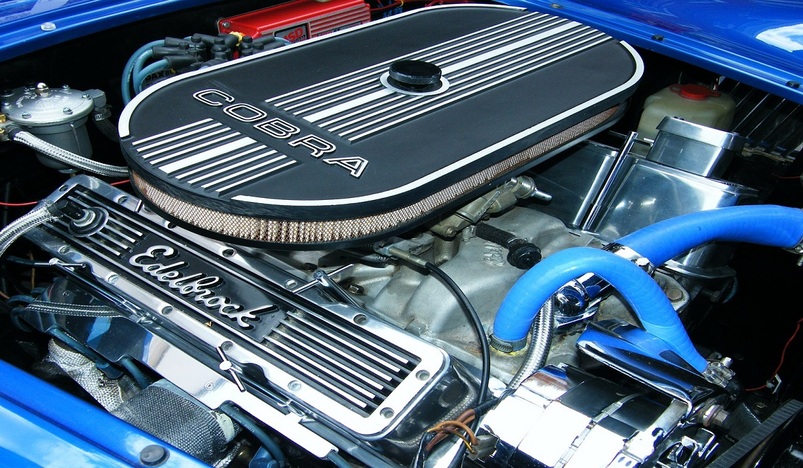
engine of car
The engine in your car is one of the most complicated and expensive parts of the vehicle. It is, however, frequently the car’s most overlooked component.
It should not be. Car engines must be maintained regularly. This maintenance should include routine inspections of the engine to keep it running like new. After all, it is the beating heart of your car. It must run smoothly in order to keep your car moving and keep its door clean.
To help you take proper care of your engine and prevent it from developing serious faults that are expensive to repair, here are five car engine maintenance tips that will help you proactively protect your vehicle and keep it in optimal condition for a long time:
1. Do Not Disregard the Check Engine Light
A character who ignores their car’s check engine light is often a running joke in many movies and TV shows. While this is amusing on screen, it is far from entertaining in real life.
Consider the check engine light to be your car's SOS signal, installed to protect your engine; do not disregard it. Most of the time, it isn't anything serious, but you should always check to be sure. If you wait too long after the light turns on, a minor issue may grow into a major one.
In addition to the standard check engine light, many cars have a number of other lights that illuminate to indicate a problem with the battery, alternator, engine temperature, or other areas around the engine. Check those out as soon as they appear as well.
2. Change Engine Oil at Regular Intervals
Engine oil is one of the most essential components that keep your car running smoothly. It performs a variety of functions, including trapping dirt, dust, and sediments and keeping the moving parts in your engine well lubricated, reducing wear and tear to a bare minimum. In other words, without it, your car's engine cannot function.
Unfortunately, engine oils do not last forever, which is why they must be changed regularly. Waiting too long before getting an oil change can cause permanent engine damage over time. As best practice, check your oil levels on a regular basis in accordance with the recommendations of your vehicle's manufacturer.
If you notice that the oil level in your engine has dropped, refill it. Consider getting a complete oil change service every quarter. The reason for this is that, in addition to regular top-ups, oil filters must be changed at regular intervals in order for your car to get the most out of the engine oil in it.
3. Keep the Engine Cool
Overheating is one of the most common and likely worst car engine problems. Excessive heat is the enemy of your automobile's engine. If the problem is not detected in time, the damage caused by overheating may necessitate the replacement or complete overhaul of the engine.
As a result, it is critical that you monitor your engine's cooling system, which includes the coolant in the radiator, water pump, and thermostat. Most importantly, always check that your engine has enough radiator fluid (coolant). The ideal coolant level is somewhere between the maximum and minimum marks on the tank.
Finally, your car's engine requires a constant flow of air to stay cool, so make it a priority to have the air filters changed or cleaned on a regular basis. Clogged air filters restrict airflow in your engine, causing the fuel not to burn completely and allowing dirt into the engine, thereby reducing its mileage and increasing emissions. It is preferable to avoid this scenario.
Pro tip: On a hot sunny day, check the engine temp gauge and turn off your car if it appears to be overheating.
4. Be on the Lookout for Oil Leaks
Yes, back to engine oils again; it is that important. This time, you should also pay attention to antifreeze. Why? Engine hoses and some other parts of the engine are sealed with rubber and silicon can fail because of pressure and intense heat. When this happens, your engine gradually loses the necessary fluids it needs to function correctly, which either leak into the wrong area of the engine or leak out onto the road/garage floor.
Keep an eye out for leaks in your engine to catch them before they cause a significant issue, such as requiring a complete engine overhaul or causing your car to break down on the road.
5. Take the Engine in for Cleaning
Most drivers clean the exterior and interior of their vehicles, but they frequently neglect the engine, allowing dirt and grime to accumulate as time passes. Do not let yourself become one of them.
There are numerous compelling reasons to have your car's engine cleaned on a regular basis. To begin with, a clean engine is a sight to behold.
On a more practical level, having a clean engine aids in the following:
The list of advantages of cleaning your car's engine goes on.
How often should it be cleaned? On average, you should treat your vehicle to a good engine cleaner service once or twice a year.
On a Final Note
This piece is not an exhaustive list of suggestions, but these are the top checks that should keep your engine in good working order and save you a lot of money in maintenance, repairs, and replacement costs. In other words, stay on top of these suggestions, and your engine will last longer, run better, and save you money in the long run.
.jpg)
Qatar Secures Place Among the World's Top 10 Wealthiest Nations
.jpg)
Hamad International Airport Witnesses Record Increase in Passenger Traffic

Saudi Arabia: Any visa holder can now perform Umrah

What are Qatar's Labour Laws on Annual Leave?
Leave a comment